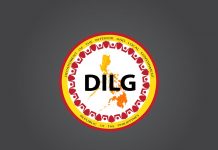The Department of the Interior and Local Government (DILG) is supporting the implementation of a national identification system as it will help fast-track transactions with the government and hasten the delivery of public services.
DILG OIC-Secretary Eduardo M. Ano says a national ID system will make transactions with the frontline agencies of the government easier and smoother for the public as only a single ID will be required from them to avail and access services.
“With a national ID system in place, it will be very convenient for both the public as well as the government. It will simplify and shorten processes because there will be no need to present multiple IDs or fill out multiple forms just to prove one’s legal identity in dealing with both government and private institutions,” he says.
The DILG Chief added that all will be helped by the system because all Filipinos will now have a valid government issued ID that’s free of charge. “No more using of cedulas as identification,” he said.
With no hassles in presenting different IDs, the DILG Chief adds, transaction time will be cut short and the delivery of public services will be hastened.
“Establishing a national ID system complements earlier government efforts to streamline government systems and processes. This is all part of President Duterte’s vision of change,” he says.
Ano explains that the same ease will be felt by the public when they transact with the private sector which will likewise recognize the credibility of the lone national ID.
The ID card may be presented in opening bank accounts, registering as a voter, getting admitted to hospitals and schools, applying for passports and driver’s licenses, requesting social welfare and services and benefits from government agencies.
The Senate and the House of Representatives have recently agreed on a single version of the national ID bill.
Once signed by the President, the national ID system is expected to be rolled out on or before the end of June this year.
Better crime prevention
According to Ano, with a national ID system in place, there will be more effective and efficient law enforcement and better crime prevention and solution.
“It will help local government units (LGUs) and the PNP exercise their role in protecting the general welfare of their communities as they will easily identify all persons in their communities, ” he said.
The lawmakers recently agreed to include 13 sets of information in the final ID system: name, sex, date of birth, place of birth, address, Filipino or resident alien, blood type, marital status, mobile number, email address and biometric data such as front-facing photograph, full set of fingerprints and iris scan.
He urges those opposing the system to open their minds to the advantages of having a national ID to law enforcement and public safety.
“Those who are against it are probably those who have skeletons in the closet because any law-abiding citizen would welcome it,” he says.



